Search
Remove Ads
Advertisement
Summary 
Loading AI-generated summary based on World History Encyclopedia articles ...
Search Results
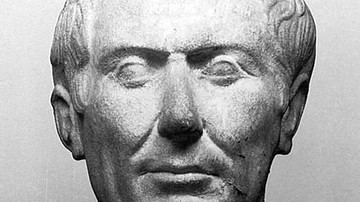
Definition
Julius Caesar
Gaius Julius Caesar was born 12 July 100 BCE (though some cite 102 as his birth year). His father, also Gaius Julius Caesar, was a Praetor who governed the province of Asia and his mother, Aurelia Cotta, was of noble birth. Both held to the...

Article
The Assassination of Julius Caesar
Veni, vidi, vici! This was the simple message the Roman commander Julius Caesar sent to the Senate in Rome after a resounding victory in the east against King Pharnaces of Pontus - a message that demonstrated both arrogance as well as great...
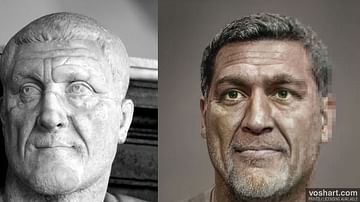
Image Gallery
Faces of Roman Emperors: Imperial Crisis & the Barracks Emperors
A series of facial reconstructions of Roman emperors during the Crisis of the Third Century (235-284 CE), including the Gordian Emperors. These so-called "Barracks emperors" seized power during a time of turmoil, and their reigns were typically...

Article
Julius Caesar: The Faults Behind the Myth
Last March marked the anniversary of Julius Caesar's assassination over 2,000 years ago, and after two millennia, his legendary achievements still linger in today's consciousness just as they have for centuries. He was so revered that in...
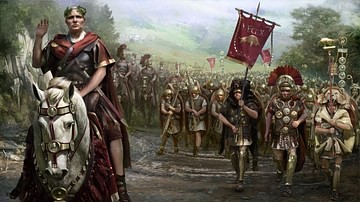
Article
Julius Caesar in Britain
By the time he led his invasions of Britain, Julius Caesar (100-44 BCE) was already an experienced politician and successful military commander. As a member of a patrician family which claimed a pedigree reaching back even earlier than the...

Definition
The Barracks Emperors
The “Barracks Emperors” is a term coined by later historians referring to the Roman emperors who were chosen and supported by the army during the period known as the Crisis of the Third Century (also known as the Imperial Crisis, 235-284...
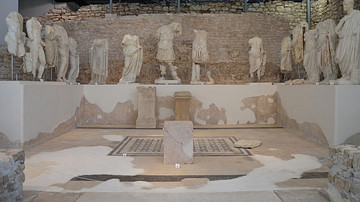
Definition
Roman Imperial Cult
The Roman imperial cult was the practice of venerating Roman emperors and their families as having divine attributes, honoring their contributions to the spread of Roman religion and culture. It was instituted by the first Roman emperor Augustus...

Definition
Caesarion
Ptolemy XV Caesar “Theos Philopator Philometor” (“the Father-loving Mother-loving God”) (c. 47-30 BCE), better known by his unofficial nickname Caesarion or “Little Caesar” in Greek, was the oldest son of Cleopatra VII (69-30 BCE) and was...
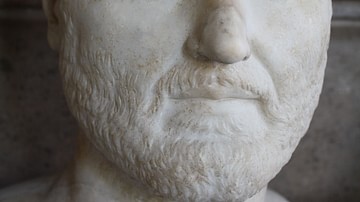
Definition
Gordian Emperors
When Maximinus Thrax was named Roman emperor upon the death of Alexander Severus, the news was not well-received by many in Rome and the Roman Senate considered him an illiterate barbarian. His financial excesses, principally used to fund...

Article
Caesar As Dictator: His Impact on the City of Rome
Gaius Julius Caesar (100-44 BCE) first assumed the role of dictator in 49 BCE, however, once he had secured his election as consul for the following year, he resigned after 11 days. After defeating Pompey at the Battle of Pharsalus in 48...